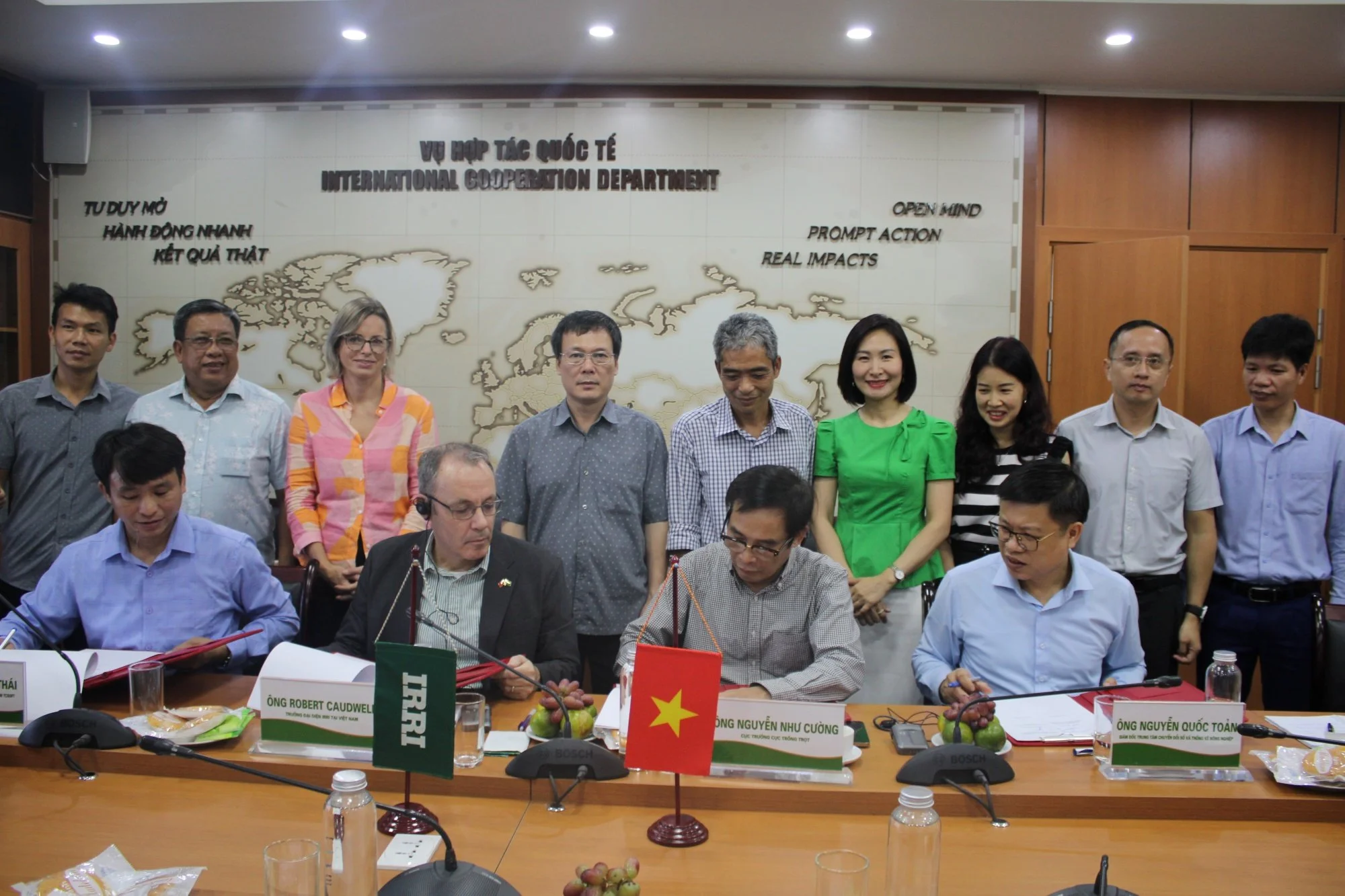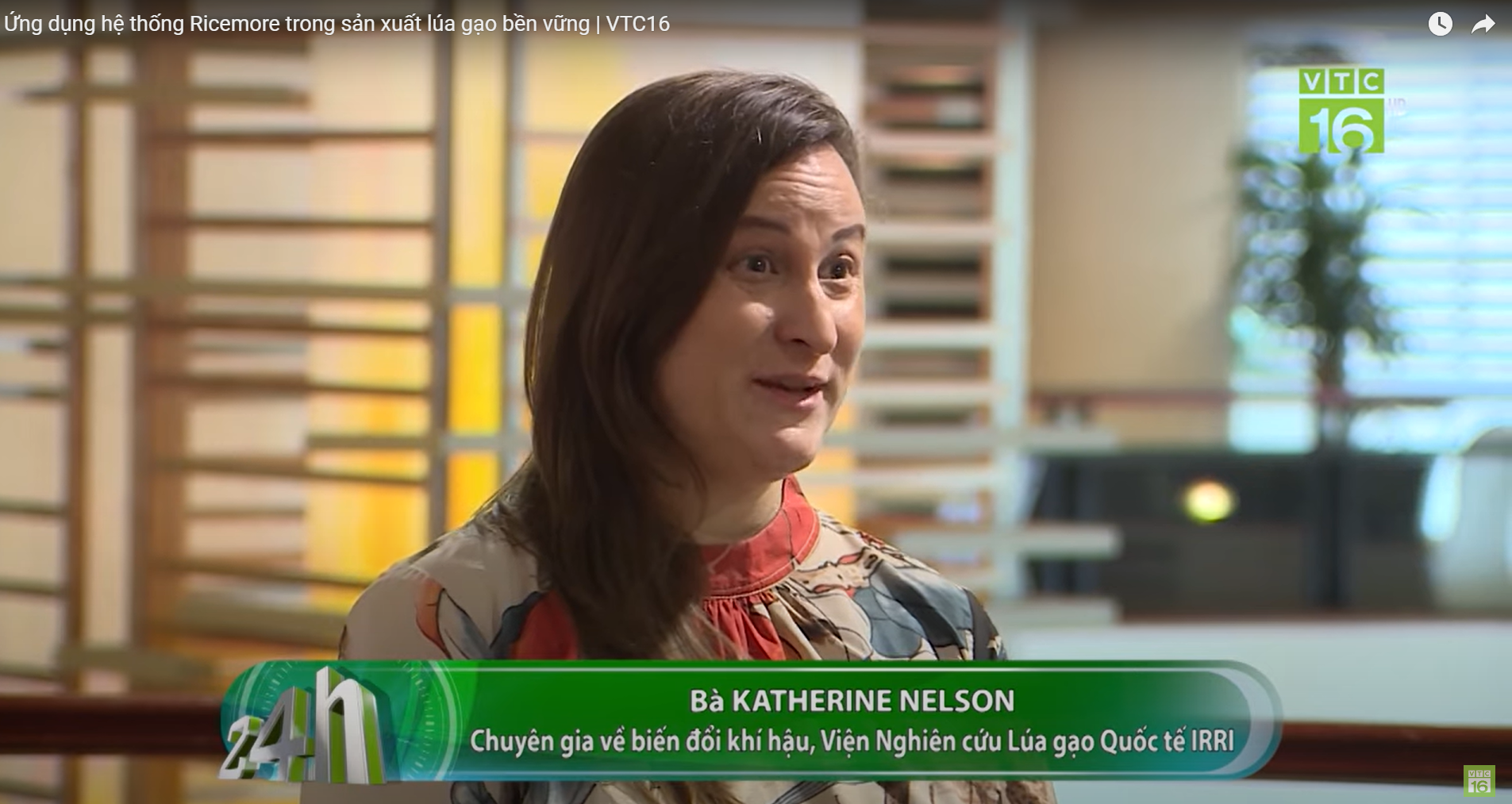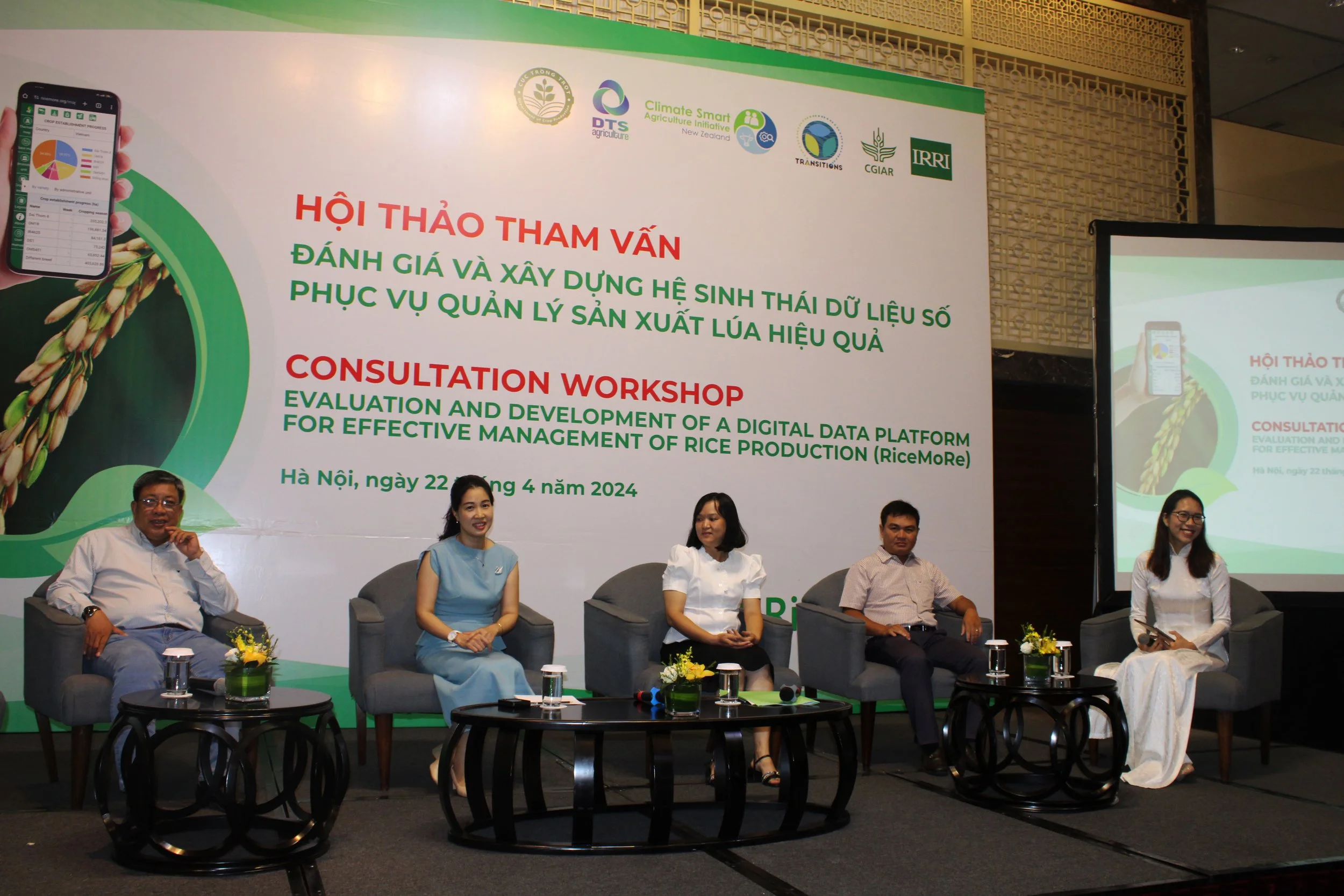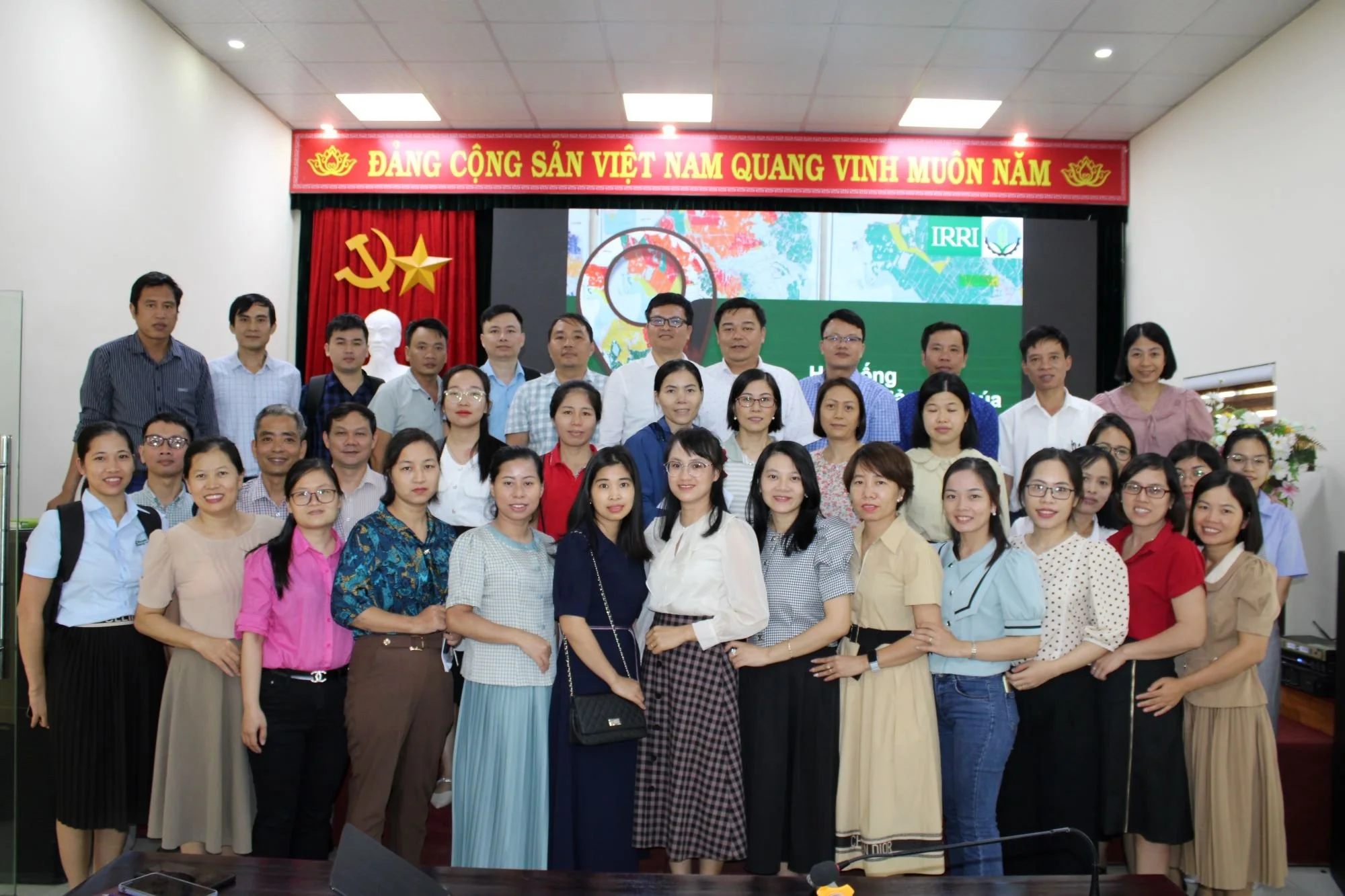Viet Nam Project
Timeframe
June 2020 to June 2025
Context
Vietnam is one of the most vulnerable countries to climate change.
Its 3,260kms coastline, and islands particularly expose it to risks from sea level rise. It is among the most proactive ASEAN countries attempting to mitigate agricultural GHG by improving ruminant rations, treating livestock and crop waste, modernising farming and improving livestock GHG inventories. The CSA programme has a larger workload in Viet Nam.
As in other partner countries the CSA is supporting Viet Nam to progress to an improved (Tier 2) livestock inventory and improving the capacity of scientist and officials to report GHG emissions. In addition, the CSA has also chosen Viet Nam to lead a regional measurement hub and to pilot a regional MRV system for rice (RiceMoRe).
Viet Nam has been a Global Research Alliance member since 2009. The NZCSA initiative is improving Viet Nam’s Tier 2 livestock inventory and building the capacity of scientists and officials to report GHG emissions.
-
Prior to the project start, Vietnam had made strong commitments on agriculture GHG emission reduction, including in the livestock sector. These commitments included specific GHG mitigation measures addressing ruminant feed and livestock manure management; the Ministry of Agriculture and Rural Development (MARD, now Ministry of Agriculture and Environment, MAE) was strongly committed to operationalising these commitments. However, there was no operational MRV system to track progress towards the NDC targets; the NDC’s livestock GHG emission reduction targets were not based on well-informed science; the inventory (Tier 1) was not capable of reflecting the changes in feed and manure management targeted and had obvious areas for improvement; the agriculture inventory compilation agency (Institute of Agricultural Environment, IAE) had no livestock expertise, but only involved the National Institute for Animal Science (NIAS) in population data provision; NIAS livestock experts had received no prior training in GHG issues.
-
The specific objective of the first project was to strengthen the capacity of the Ministry of Agriculture and Rural Development (MARD, now Ministry of Agriculture and Environment) to implement their responsibilities for GHG measurement, reporting, and verification in the livestock sector.
A separate project supported IRRI to digitise and institutionalise in MARD an MRV system for rice cultivation activity data.
-
According to national legislation, MARD has responsibility for GHG inventory compilation, GHG mitigation planning and MRV in the agriculture sector, including livestock.
GHG inventory improvement: The livestock GHG inventory (Tier 1 for all species, Tier 2 for cattle and pigs) have been improved. The improvements included recalculating the inventory following the 2019 Refinement to the 2006 IPCC Guidelines, which uses different emission factors. Some errors and omissions in earlier inventories were also corrected. This led to some significant revisions to GHG emission estimates. The implications of applying the technical improvements for recalculating the NDC BAU and mitigation scenarios were assessed. Full acceptance of the revised inventory will take communication and time, not least because of the restructuring of MAE in 2025. The expert team at NIAS now fully understands GHG inventory requirements and has the capacity to update the inventory in the future. NIAS also involved the inventory compilation agency (IAE) at various phases of the project, which established a good cooperative basis for uptake of the improved inventory and further work on livestock GHG mitigation. Dr Huyen, team lead for NIAS, has been appointed to the working group responsible for NDC updating in the agriculture sector.
Livestock MRV system piloted: For some years, MARD Department for Livestock Production (DLP) had been lobbying to include large-scale cattle and pig farms in the list of entities subject to mandatory GHG reporting and mitigation planning. However, there was no system to calculate GHG emissions from these farms. The project developed Excel-based farm GHG calculators designed for different types of cattle farm and piloted their use on a small number of farms. The response from the private sector and government was very positive. Recommendations were made for further improvement of the tools and for a capacity-building programme to support their roll-out.
Rice MRV system institutionalised: An Excel-based system for recording and reporting rice cultivation activities (RiceMoRe) – originally designed for harvest monitoring and forecasting – was turned into an online reporting system with support of the NZCSA. Extensive training was provided to government staff from local, provincial, and national levels, and the management of the digital system was handed over to the MARD Digital Services Centre. A decree was issued mandating operation of the system in the Mekong Delta Region, Vietnam’s main rice producing area. The system has not yet been adopted as the basis for MRV of GHG emissions in Vietnam. IRRI is now exploring replication of this system in other countries in Southeast Asia.
Research capacities: Through both the inventory and measurement work, individual and team capacities within NIAS have been strengthened. They are now able to independently design and implement experiments to measure enteric methane and manure emissions. Engagement in the international science community has also been strengthened, and NIAS has engaged with various partners (e.g. Chinese Academy of Agricultural Sciences, CIRAD France, and ILRI) on related research activities. Technically, NIAS are excellently set up to take the lead in measuring both enteric and manure emissions from Vietnamese livestock systems. They have also shown themselves to have excellent research management systems, with timely reporting, timely progress, and as active collaborators.
-
Enhancing Vietnam’s ability to take and track climate action: Vietnam’s existing political ambition for GHG mitigation in the livestock sector has been strengthened with the improved inventory, creation of a team of experts at NIAS fully conversant with GHG emission and mitigation issues, and a clear direction for future improvement of the piloted MRV system. Private sector responses to the MRV pilot were also positive. This sets a good basis for DLP to fulfil its mandates for inventory compilation and MRV in the livestock sector with support of other stakeholders. The team at NIAS is well capable to support DLP to continue making progress in this area. The experiment results and inventory work have also strengthened the NIAS team’s understanding of mitigation options. They are now in a good position to pursue future applied research to identify practical and effective GHG mitigation options in collaboration with the private sector.
Enhancing NZ’s partnership with Vietnam: Key partner agencies in MARD (including International Cooperation, DLP, DOSTE) highly appreciated the support on this topic from New Zealand. Livestock is an area in which NZ is a recognized international leader, and climate change is a key topic in the NZ-Vietnam Comprehensive Strategic Partnership. This cooperation directly contributed to strengthening NZ’s partnership with Vietnam.
Reports
Inventory Improvement
Experiment Results
Policy Impact
Project Information
Impact
“This is the first project MARD has been supported to do involving capacity building and equipment training on the issue of GHG in the livestock sector. Vietnam has an ambitious NDC commitment with emission reduction targets for rice and the livestock sectors. Therefore, strengthening the capacity of MARD and other stakeholders to conduct GHG inventories and develop a system for livestock MRV is very necessary, New Zealand has come to support MARD at the right time.”
“All procedures and knowledge on the issue are new for us, nevertheless, we have progressed step by step through training courses, with implementing the activities and doing the calculations under the guidance of excellent, professional and enthusiastic experts……I feel very proud of what we have done, and what we have obtained from the project, when I introduce and report about the project to MARD, MONRE, and other organizations. I am also proud of my team.”
Assoc. Prof. Dr. Le Thi Thanh Huyen, NZCSA Vietnam Lead and Senior Researcher in Farming System, Livestock System and Environment Research Department (NIAS)
Implementation Partners
In-country partners
The Ministry of Agriculture and Rural Development (MARD)
The Chinese Academy of Agricultural Sciences (CAAS)
Can Tho University (CTU)
International Rice Research Institute (IRRI)

NZ-funded RiceMoRe digital monitoring and reporting system nominated for the Vietnam National Television’s Awards for Impressive Digital Transformation Application of the Year (Jan 2025)

Manure management experiments beginning with the collection of samples from Pig farms, important work (Oct 2024)

Manure management experiments (Oct 2024)
NZ Embassy staff attend event for transfer of RiceMoRe to Vietnam's Ministry of Agriculture and Rural Development (Jan 2025)



The success of the CSA-funded RiceMoRe pilot project discussed on the national news (Apr 2024).


New Zealand funding acknowledged at RiceMoRe workshop panel discussion with representatives from DCP, DTS, and provincial Departments of Agriculture and Rural Development (DARDs) of Vinh Long, Can Tho, and Hai Phong, as well as an open forum involving all participants.








RiceMore training of local officials begun with IRRI, DCP, and DTS event in Can Tho City and the provinces of Vinh Long and Kien Giang (12 to 15 September 2023)




The officials from the sub-department recently underwent specialized training to use RiceMoRe. The software aims to streamline the rice production management process, reducing manual errors, and enabling a more efficient data entry and reporting system (Hai Phong City, Vietnam, Nov 2023)









